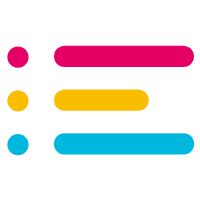
Author Sofiey_xoh
PLATON AS A MEDIUM FOR AI DEVELOPMENT-The huge amount of available data is a driving factor behind the current AI revolution.Using the blockchain to store, manage, and share data has some advantages and potential gains for
AI and ML systems.
Decentralized data storage via clouds, data centers, and
clusters is becoming a major bottleneck for highly secure and data-protection-relevant AI applications’ development. Centralized data storage is very vulnerable in terms of data protection and security when it comes to personal and sensitive data about users, locations, activities, and health records.
Furthermore, there are several ways to manipulate the training data and models of AI systems. The field of adversarial machine learning is concerned with creating algorithms that are more robust towards
these security challenges. This is a topic of significant relevance, also addressed by the NIST, that published a first draft for the taxonomy and terminology of adversarial machine learning.
Furthermore,Using the blockchain to obtain and store learning data for AI systems holds the promise of opportunities to counteract the difficulties and dangers mentioned above. This means that data’s secure storage and provision via the blockchain are a direct advantage for AI systems. Possible gains are
greater security, better quality of learning data, and increased motivation for data creators and owners to share their data.
AI developers can actively search for training datasets in the data market. Besides, they can publish models so that others can provide data to collaborate on training models. In order to protect the privacy and security, the data must be authorized and model training must be conducted through privacy-preserving outsourcing computation or secure multi-party computation protocols.
For developers who want to provide AI services over the web, the most critical component is the service node, which is an execution container for an AI model that can host
multiple AI models and provide AI services externally. Considering network redundancy
and fault tolerance, AI models can generally be hosted to multiple service nodes and can be migrated between service nodes.
The registration node and the evaluation node form an intelligent search network, allowing users to search and interact with AI services and agents. AI services and agents register their text descriptions and labels to registry nodes so that users can discover their
services, pricing, addresses, and other information and invoke them.The evaluation node establishes a reputation scoring system through consensus algorithms by conducting service testing, evaluation and rating on AI services and agents.
They conduct searches and recommendations based on this scoring system so that other users can quickly and easily query AI services and agents. The effect of evaluation can be improved by machine learning algorithms trained on historical data, such as successful queries and interactions. Users can identify potential AI services and agents by using search based on machine learning.
In order to make AI agents to be truly autonomous, they need to understand how to communicate to each other, not just the corresponding communication protocol. The application of Natural Language Processing (NLP) and Process Mining technologies enables autonomous agents to understand tasks described in natural language and develop true autonomy.
INCREASED TRANSPARENCY PRODUCES BY PLATON NETWORK AI systems- decisions that consumers or users find difficult to understand might
lose their value and this is where PlatON Network comes in to provide a clear audit trail which might not only improve the data’s and models’
trustworthiness, but also provide a transparent way of tracking the process of how the AI system came to its decision.
It is assumed that the blockchain can increase trust in and the transparency of AI systems.It can also be emphasized that with AI’s increasing importance in everyday life and in critical business processes, trust in data, models, training processes, and results is of increasing importance.
The PlatON Network blockchain can help track and illustrate a specific AI process at different granularity levels. PlatON Network also aims at enabling a fair evaluation of different stakeholders’ contributions by
capturing the involved parties’ interactions and activities.This approach is further elaborated, in which it’s presents a generic blockchain library to create trust in distributed AI applications and processes. The PlatON Network
library captures the entire distributed AI training process, including the data,intermediate and final models, processes and dependencies,participants,operations, and relevant metadata.
However,Operators, internet platforms, insurance institutions and other multi-party data institutions
can use privacy-preserving computation technology which PlatOn Network provides to open more risk control private domain data tags to collaborate with banks in a confidential manner. The collaboration
can better support the financial risk control business, realize the whole-process monitoring before,during and after the loan, and improve the timeliness of risk control.
Through the private set intersection (PSI) and privacy-preserving join query, the bank can facilitate the statistics and understanding of the customer’s comprehensive credit risk,and does not disclose any party’s customer ID and private domain data information,forming a joint risk prevention, joint control and joint ecology.
This article is reproduced from https://forum.latticex.foundation/t/topic/6131




